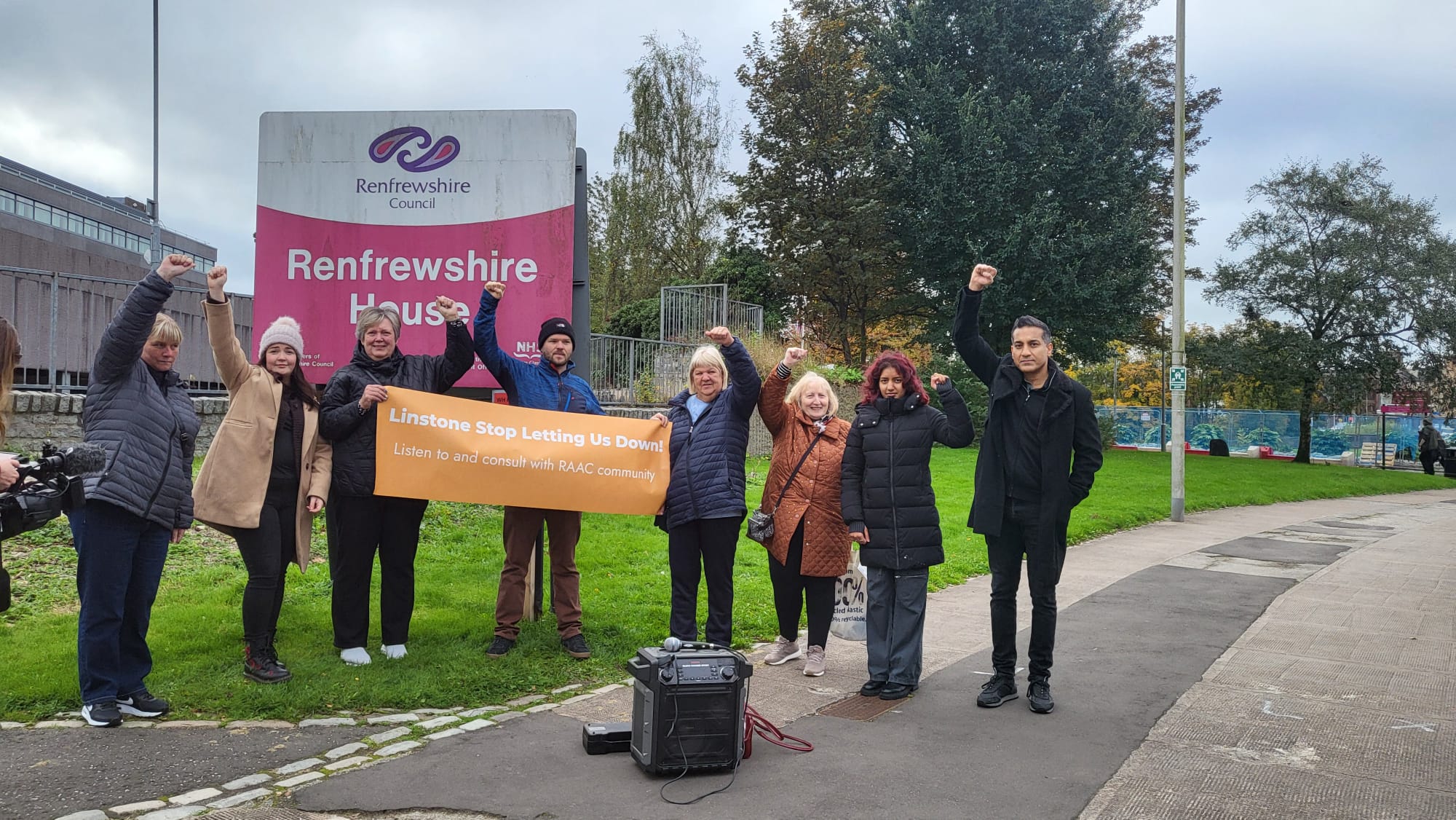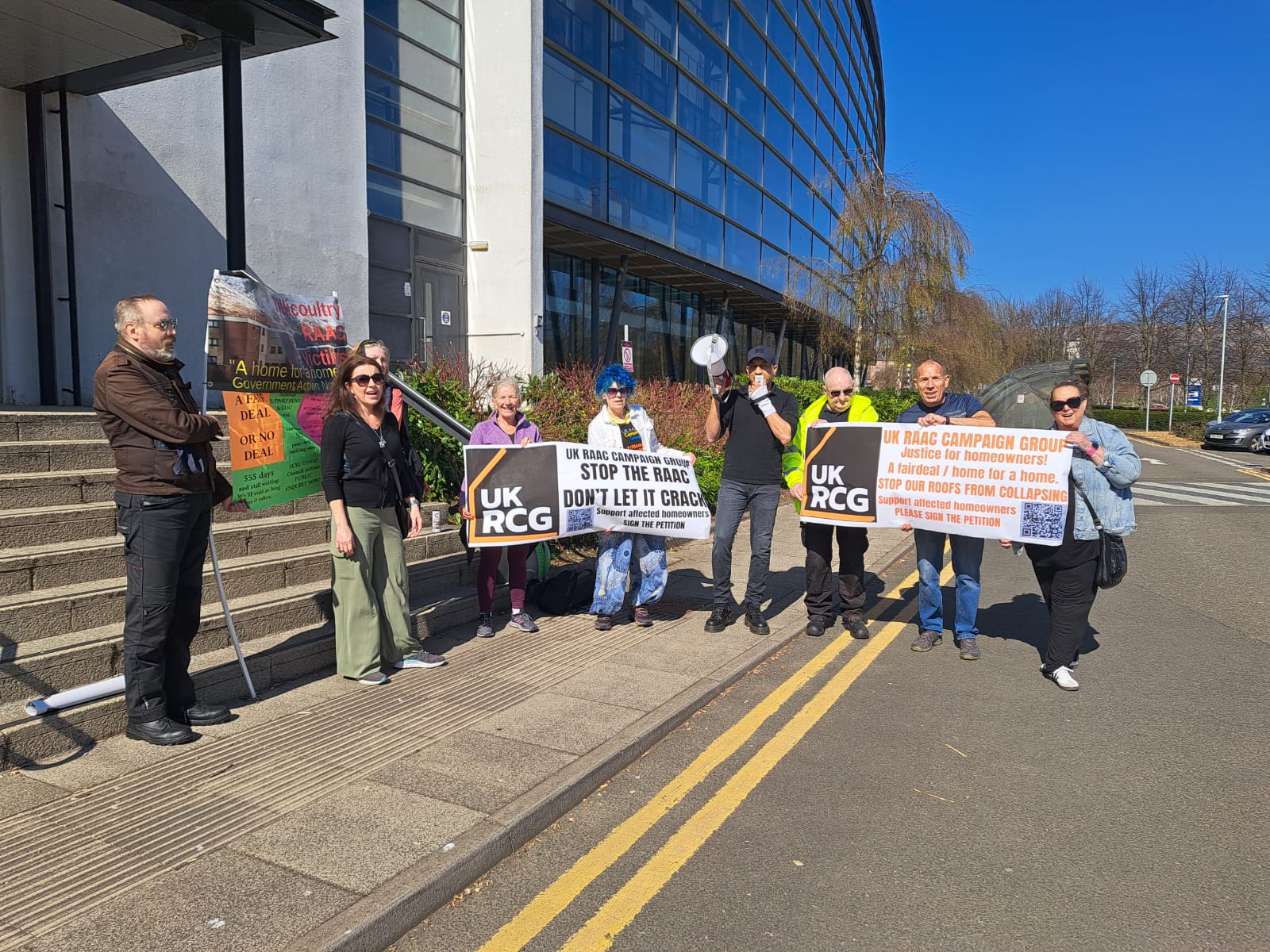A press conference on Religious Freedom and Persecuted Christians in the World will be held on Tuesday, November 18, 2025, at 5:30 PM, at the
RAAC Crisis in Wales: Why the Welsh Government Must Do More for Homeowners in Despair. Report by Wilson Chowdhry
UK: Across Wales, dozens of families—many of them elderly—are facing financial collapse and the prospect of homelessness due to a crisis they never caused. The culprit? Reinforced Autoclaved Aerated Concrete (RAAC), a defective building material used extensively in the post-war construction boom and now known for its severe structural weaknesses.
The Welsh Government’s recent response to our appeals, signed by Deputy Director Richard Baker, acknowledges the problem—but fails to grasp its full human and moral scale. The response offered little beyond piecemeal local support and brushed aside calls for a statutory public inquiry and a national register of high-risk buildings.
We believe the alarm must be sounded louder—so we’ve written to the Welsh Government once again. (Click here to read our latest letter.)
Inadequate Support Is Leaving Homeowners Behind
In places like the Gower Estate in Hirwaun, some affected homeowners have received small grants (£6,500) and interest-free loans. But many others fall outside the narrow eligibility rules and are left to bear the full burden of repairs themselves—costs that can run into tens of thousands of pounds.
Most of these residents are over 65. Some are facing bankruptcy. Others are slipping into deep depression, paralysed by uncertainty and fear. The support on offer simply doesn’t go far enough.
We are calling for the Welsh Government to urgently reconsider its decision not to establish a national remediation fund for homeowners. These are people who bought homes in good faith, only to discover hidden dangers that were known to officials but never disclosed to the public.
?️ Why We Still Need a Statutory Public Inquiry
The Welsh Government’s stance that "a Public Inquiry would not reveal anything new" is deeply troubling.
RAAC is not just a technical problem—it is a symbol of systemic failure:
Government departments and local councils allowed RAAC to be used despite early warnings.
Powerful individuals and organisations promoted the material while holding sway over public policy.
Homes built with RAAC were sold under the Right to Buy scheme long after the risks were known.
Promotional materials actively misled both buyers and professionals about RAAC’s safety.
Minister Alex Norris the UK Parliamentary Undersecretary of State for Housing says that RAAC has long been a “known issue,” he inadvertently raises the most critical question of all: Why wasn’t the public informed? Why weren’t homebuyers warned?
This is exactly why we need a statutory Public Inquiry, modelled on the Grenfell Tower Inquiry. We must examine not just the use of RAAC itself, but also the web of oversight failures, commercial interests, and missed warnings that allowed this crisis to happen.
?️ Why We Still Strengthened Building Regulations
When I called for building regulations in Wales to be strengthened—specifically to include a mandatory 50-year guarantee on construction materials—I was told there are currently “no plans” to introduce such measures. Instead, the Welsh Government referred to Regulation 7, which requires materials to be “adequate and proper.” But RAAC was once considered “adequate” too, and we now know the catastrophic consequences of that judgment. Vague wording and minimum standards are simply not enough. In contrast, the UK Government has recognised the need for system-wide reform, as outlined in its Construction Products Green Paper. I was invited to participate and have since completed a detailed 56-question submission to support that review. I am sharing my response with the Welsh Government in the hope that it will spur more proactive policy-making. It is disheartening to see Wales taking a back seat—waiting on others to lead—when it could and should be setting the standard for construction safety and consumer protection.
?️ Where Is Wales’ High-Risk Property Register?
A further serious concern is the Welsh Government’s decision not to advance a High-Risk Property Register or enhance the home buyer report, attributing the inaction to resource constraints.
Scotland initially cited similar resource-related concerns. However, following sustained pressure—including my own petition to the Scottish Parliament—the Scottish Government is now actively progressing legislation to strengthen the Home Buyer Report and is regularly discussing the development of a High-Risk Property Register. Notably, they have already implemented the Cladding Assurance Register, which could be expanded to include RAAC and other hazardous materials.
Contrary to some claims, the necessary technology is already in place. Councils such as Clackmannanshire use software like Idox to store building safety data, and Stephen Booth, Strategic Officer for Place at Aberdeen City Council, has confirmed that the council already has the technological capacity to implement such a change. It is therefore reasonable to expect that similar capabilities exist in Wales. A centralised register would help prevent future building safety disasters and make the home buying process safer, more transparent, and accountable.
Without it, dangerous homes—like a RAAC-affected property recently sold at auction in Craigshill—will continue slipping through the cracks.
? The Human Cost
This isn’t about bricks and concrete—it’s about people. Elderly pensioners. Young families. Vulnerable tenants. They’ve been left alone to face a silent but growing catastrophe.
We need leadership. We need transparency. And we need compassion.
We are again calling on the Welsh Government to:
Establish a national RAAC remediation fund for homeowners.
Launch a full Public Inquiry into the history and mismanagement of RAAC.
Develop a comprehensive High-Risk Property Register to protect future generations.
If we don’t learn from these failures—and act decisively—the tragedy will only repeat itself.
Wilson Chowdhry
Chairman, UK RAAC Campaign Group
? wilson@aasecurity.co.uk
You May Also Like
UK: Homeowners across Renfrewshire, are facing an unbearable situation — trapped in homes built with the dangerous concrete materia
UK: Six weeks after an email from the Scottish Housing Minister’s office offered a long-awaited meeting, Tillicoultry’s RAAC homeo

On demand of our readers, I have decided to release E-Book version of "Trial of Pakistani Christian Nation" on website of PCP which can also be viewed on website of Pakistan Christian Congress www.pakistanchristiancongress.org . You can read chapter wise by clicking tab on left handside of PDF format of E-Book.








